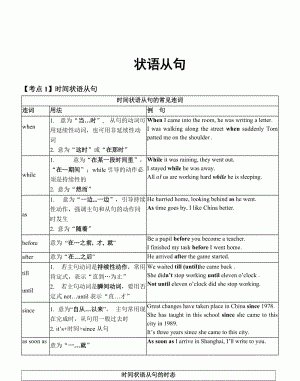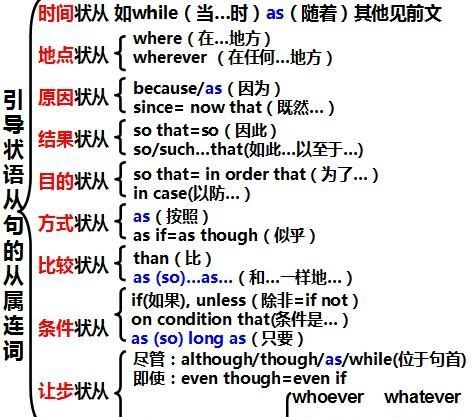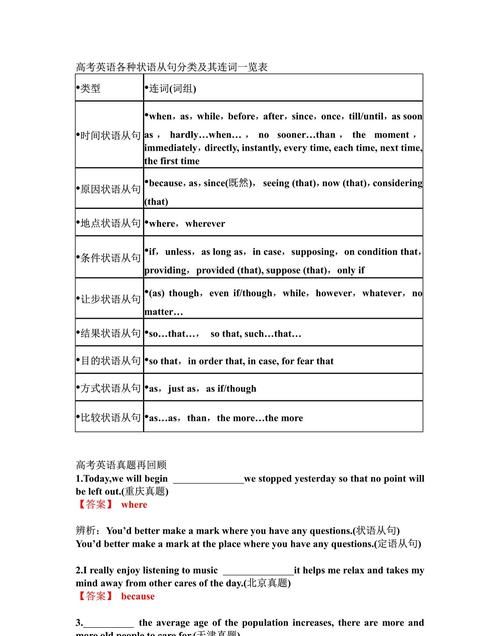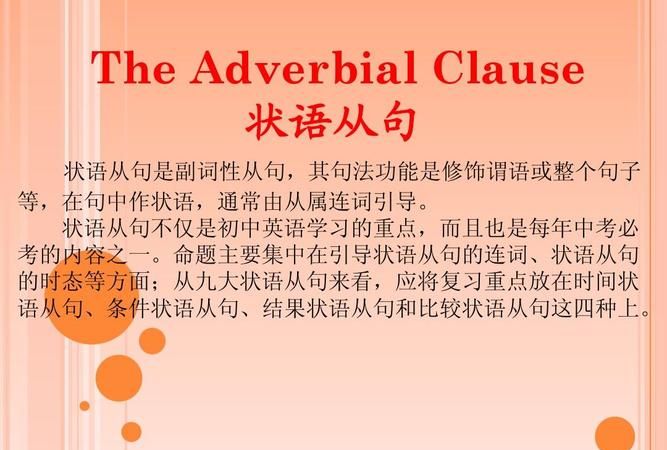本文目录
翻译比较状语从句中翻英或英翻中 这项工作不像你想象的那么难
1.This work isn't as hard as you imagined. 2.The house isn't as large as the one we saw yesterday.

比较状语从句用法总结
比较状语从句是运用于形容词和副词的原级、比较级及最高级句子中,起副词作用的句子。引导比较状语从句的连词主要是 as 和 than。,1. 形容词/副词的比较级+than+被比较的对象。表示两个人或事物在某(些)方面的差别。than是连词,引导从句。后面被比较对象如果是名词,多用省略形式,省去与主句中相同的部分。,Man grows faster than the pla he inhabits. 人类成长的速度远比他居住的星球快得多。,注意:,①从句中的主语(名词)如果与主句中的主语一致,为了避免重复,常用that代替不可数或某,可数名词,用those代替可数复数名词,用one或ones代替可数名词。例如:,The result of this experiment is better than that of the last one. 这次实验的结果要比上次好。,The students in our class are more diligent than those in their class. 我们班的学生比他们班的学生用功。,②比较状语从句的动词,如果与主句的谓语动词一致,且为行为动词时,常用do(does,did)代替,以免重复。例如:,We have produced even more coal this year than we did that year. 我们今年出产煤要比去年出产得更多。,She drives better than her hu *** and does. 她开车开得比她丈夫好。,2.①“no+比较级+than”(不比…多,不少于)。no是副词,在主句中作状语,修饰形容词或副词的比较级;than是连词,引导从句。例如:,Tom is no less diligent than peter. 汤姆用功不比彼得差。(汤姆和彼得同样用功),He feels no better today than he did yesterday.他今天的感觉不比昨天好/他今天的感觉跟昨天同样不好。,②“not more than”不如…(前者不如后者),Jack is not more diligent than John. 杰克不如约翰勤奋。,3.句型the…the…(越…越…)即:从句:the + 比较级,主句:the + 比较级,The more we study, the more we discover our ignorance. 我们越学习,就越发现自己无知。,主句如果是将来时,从句可用现在时代替将来时。例如:,The longer the treatment is delayed, the worse the prognosis will be. 延误治疗的时间越长,预后越差。

英语中的状语从句分为哪几类?
英语状语从句分8种:
1.时间状语从句(adverbial clauses of time),多由连词引起。
(when,after,before,as,as soon as,as long as,since,whenever,once)
E.g. When we lived in town we often went to the theater.
It was a long time before I got to sleep again.
As the sun rose the fog dispersed(vt. 消散).
少数不由连词引起状语从句。
(now that,every time,each time,the moment,immediately,instantly,directly)
E.g. Directly he uttered(vt. 说出)these words, there eas a dead silence.
I had no sooner checked in the hotel than he arrived.
2.地点状语从句(adverbial clause of place)
(where,wherever,anywhere)
E.g. The church was built where there had once been a roman temple(n.寺庙).
Everywhere I go, I find the same thing.
3.方式状语从句(adverbial clause of manner),一般由as,like,as if引起。
E.g. I am as you can image short of money. 正如你能想象的那样,我很缺钱。
I did as she asked.
Do it as he does.
I feel just like I did when I was a boy.
I remember the whole thing as if it happened yesterday.
He glanced about as if in search of something.
4.原因状语从句(adverbial clause of reason), 一般由because,as,since,in case,还有两个词有相同的意思(seeing,considering)
E.g. He was angry because we were late.
As the soup was very salty, we were thirsty afterwards.
He took a spoonful(n.满满的一勺) and tasted it in case it was hot.
Seeing that it is ten o’clock, we shall not wait for her any longer.
5.条件状语从句,一般由if,unless,supposing, providing,as long as, granted that引起。
E.g. We sat on the grass if it was fine.
If I could afford it, I would buy a boat.
If necessary, ring me at home.
Supposing he can’t come, who will do the work?
6.让步状语从句(adverbial clause of concession),主要由although, though, even though, while,whereas。
E.g. Though we are poor, we are still happy.
Some praise him, whereas others condemn him.
Though not large, the room was well lit.
7.目的状语从句和结果状语从句(adverbial clause of purpose and adverbial clause of result),主要由so that,such that, in order that,otherwise,else.
E.g. Let’s take the front seats that we may see more clearly.
Give me back the money, otherwise I’ll ring the police.
Hurry up or else you’ll be late.(赶快,否则你就会迟到了。)
8.比较状语从句(adverbial clauses of comparison),主要由than ,as 引起。
E.g. You sing better than I do.
I haven’t done as much as I should have liked.(我没做得像我希望的那样好。)

结果状语从句英文翻译
The more sorrow you are, the more happy you wil be; the more you cherish, the more fearfully you lose; the more glad you are; the more sad you are afraid . 参考一下

以上就是关于比较状语从句用英语怎么说 ,比较状语从句的举例的全部内容,以及比较状语从句用英语怎么说 的相关内容,希望能够帮到您。

